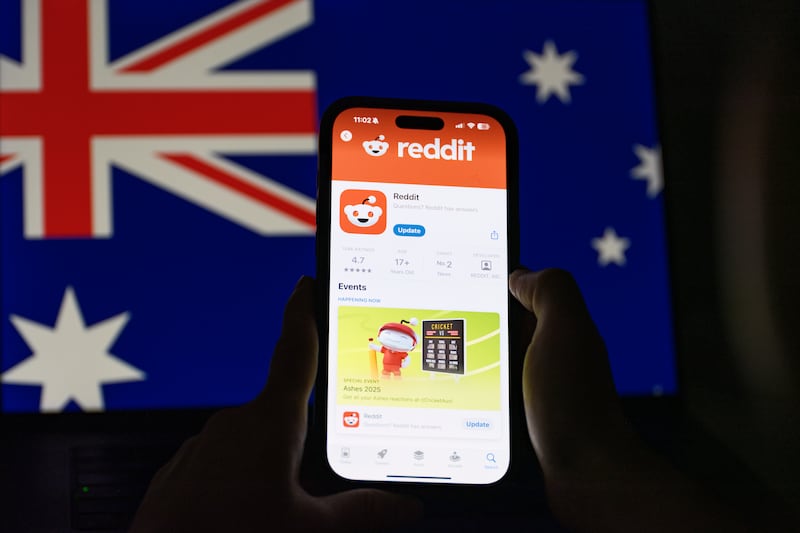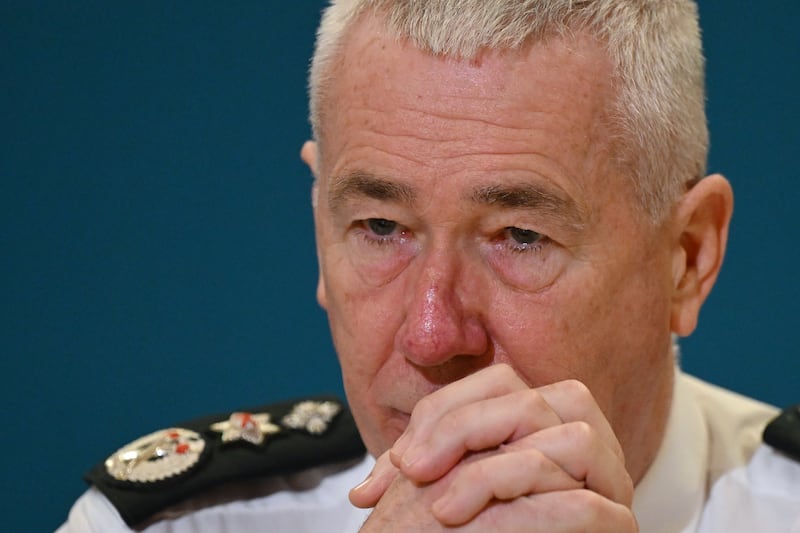One way to respond to a perceived snub from the Nobel Peace Prize committee is to fly to Jerusalem on the day when the 20 living hostages returned to their families, to then declare “the dawn of a new Middle East” in a speech broadcast globally, to receive a prolonged standing ovation in the Knesset and cheers from crowds gathered in Tel-Aviv and to then fly on to Sharm El-Sheikh in Egypt where 20 leaders from the world’s richest nations waited patiently for a summit on the future of Gaza.
That was Donald Trump’s Monday.
Three previous sitting presidents have addressed The Knesset, the Israeli parliament: Jimmy Carter, Bill Clinton and George W Bush. Trump’s speech was the lengthiest and took place against the historic canvas of extraordinarily emotive scenes: the near-anguished joy of the Israeli families whose loved ones were returned to them and the more sombre reunions in Gaza, where many hundreds of Palestinians were released from Israeli custody to return to the bombed-out ruins and collective trauma of their homeland.
In Jerusalem, Trump’s speech was, predictably, a salute to the unbreakable bond of friendship between Israel and the United States as well as a stout championing of its president, Binyamin Netanyahu. The Israeli president sat through the American’s spirited address, bearing his inscrutable smile and thinking his way through this moment.
RM Block
“From the very first day since modern Israel was founded we have stood together through thick and thin, setbacks through victory and defeat, through glory and heartache. We have built industries together and we have waged war together and most beautifully of all we have made peace together. And this weekend we have done the impossible and brought our hostages home.”

This was Trump in all his guises: at the epicentre of world affairs and speaking in broad, majestic images of a sunny future while waging a domestic campaign in Democratic cities across the United States. Nor could he resist a typical scorpion’s sting at domestic opponents from the podium, criticising his predecessor, Joe Biden, whose cancer treatment is intensifying this week, for failing to build on the Abraham Accords, and castigating the nuclear deal Barack Obama signed with Iran.
Certainly, Biden’s catastrophic leniency towards Netanyahu will not be judged kindly in his legacy. There was a sense in the Knesset that this day had been foisted on the Israeli prime minister as Trump told the parliament that “a beautiful and much brighter future appears suddenly within your reach” before arriving at his crucial point.
“This is now a very exciting time for Israel and for the entire Middle East because all across the Middle East, the forces of chaos, terror and ruin that have plagued the region for decades now stand isolated, weakened and totally defeated.”
This will sound like wilful optimism to the ears of hardened experts in the region’s geopolitical realities, let alone its citizens. But wilful optimism is, with diet Coca-Cola, Trump’s elixir. On Monday, he brought with him to the Middle East his unique hold and sway on the masses: his capacity for generating momentum. For Netanyahu, he reserved special praise.
[ Middle East: All you should knowOpens in new window ]
“Whether we like it or not, this has been one of the greatest wartime presidents and cigars or champagne, who the hell cares about that? You’re a very popular man. You know why? Because you know how to win.”
The reference to cheroots and bubbly was an acknowledgment of the domestic corruption charges Netanyahu faces. And with typical Trumpian chutzpah, he seized the moment to turn to Israel’s president, Isaac Herzog, to suggest that Netanyahu be given a pass, a pardon. That, too, received an ovation.
[ Hamas swaps last Israeli hostages for Palestinian prisonersOpens in new window ]
Netanyahu is watchful. He would have heard the booing when Steve Witkoff mentioned his name in a public address in Tel Aviv on Saturday night. An August poll in the Maariv newspaper showed that 62 per cent of Israelis no longer have confidence in his government.
Trump is more popular in Israel than Netanyahu. In the silent arm-wrestle between the friendly leaders, the American has won.
But Netanyahu is the master of self-interest. He will have noticed the sorry fate of Rudy Giuliani and the humiliating sidelining of Elon Musk. In Trump’s world, friendships are expendable and inextricably linked to usefulness and power. Netanyahu is fighting not to become yesterday’s man, and he knows that Trump has no interest in yesterday. And beneath the flattering words delivered to Netanyahu in his own parliament was the clear message. “Be a little nicer, Bibi, because you’re not at war any more.”
In the weeks to come, Netanyahu’s claim that the reports of famine and genocide were the stuff of propaganda swallowed by gullible European leaders will be held up to an unforgiving light through what lies beneath the ruins of Gaza.
Significantly, he wriggled out of an invitation, extended at Trump’s behest, to attend the afternoon summit in Egypt.

In Sharm El-Sheikh, where he arrived hours behind schedule, Trump declared that as far as the US is concerned, Phase Two of the peace plan has already begun. It was noted by Trump that almost half of the world’s wealth was locked into the nations represented at the Egypt summit. Again, they were treated by a charm offensive from the guest of honour. It extended even to Iran, whose leaders, he noted, had welcomed this deal.
Optimism flowed with the abundance of oil itself. The painstaking steps towards political stability, the security and reconstruction of Gaza, the millions of displaced people and the division of costs were details for another day.
US secretary of state Marco Rubio declared Monday to be “probably the most important day for world peace in 50 years.”
“Only 50?” queried Trump. A titter of laughter. Rubio corrected himself and said maybe it was more like 100. In the opening remarks, Egyptian president Abdel Fatah El-Sisi told Trump that he was the “only one who is capable of bringing this about and bringing an end to this war”.
“That’s all I do in my life,” Trump reminded the room, and the world.
“I make deals.”





















